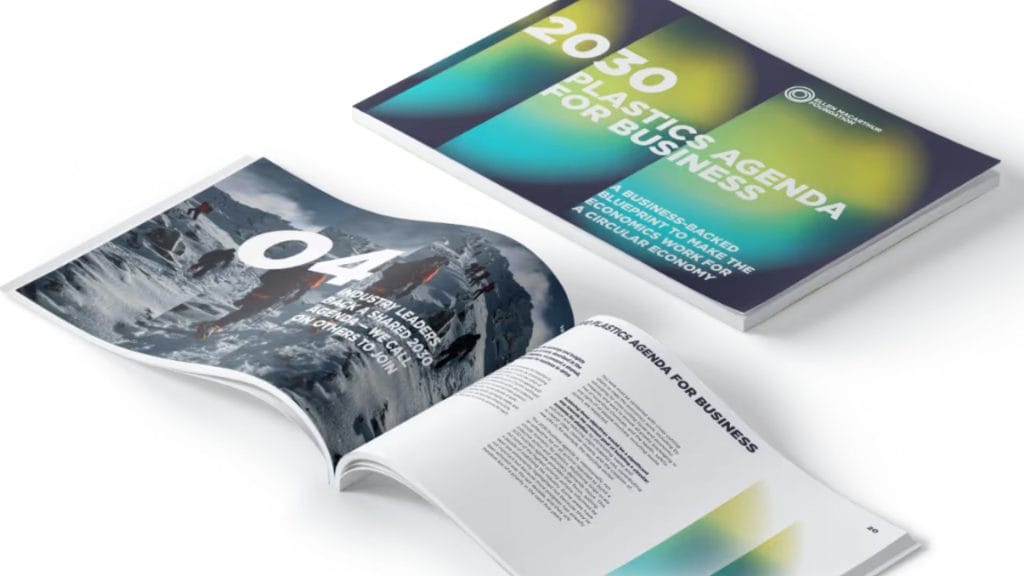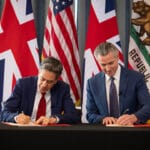Nestlé, PepsiCo, Unilever Support Ellen MacArthur Foundation’s 2030 Plastics Agenda

• Major global brands representing 20% of plastic packaging market reaffirm commitment to circularity.
• Agenda calls for shared advocacy, collaboration, and policy alignment to scale reuse and reduce waste.
• Foundation urges governments to accelerate harmonised regulation and extended producer responsibility frameworks.
Global Push to Transform Plastics by 2030
Some of the world’s largest consumer brands, including Nestlé, PepsiCo, Unilever, and TOMRA, have endorsed the Ellen MacArthur Foundation’s 2030 Plastics Agenda for Business, a five-year roadmap to speed the transition toward a circular economy and curb plastic waste at scale.
The plan sets out three strategic levers—collective advocacy for ambitious policy, shared innovation and cost structures, and company-level transformation—to drive coordinated progress across packaging value chains.
Backed by businesses covering one-fifth of global plastic packaging, the initiative aims to move beyond voluntary efforts by integrating circularity into policy design and investment priorities. It comes as negotiations continue on a United Nations treaty to end plastic pollution, where calls for enforceable global rules are growing louder.
Collective Advocacy and Systemic Change
The 2030 Agenda urges companies to engage governments to develop harmonised and enforceable frameworks supporting waste prevention, reuse and refill models, extended producer responsibility (EPR), and deposit return schemes (DRS). These are viewed as essential mechanisms to reduce single-use plastic and build infrastructure for high-quality recycling.
“Many business leaders ask me what comes next. My answer is simple: don’t wait,” said Rob Opsomer, Executive Lead for Plastics and Finance at the Ellen MacArthur Foundation. “The companies that act now can help shape effective policies and make circular solutions the new normal.”
By aligning regulatory frameworks with corporate initiatives, EMF argues, businesses can lower transition costs, scale proven reuse systems, and accelerate innovation.
A Decade of Progress — and Persistent Gaps
Since launching the Global Commitment with the UN Environment Programme in 2018, the Ellen MacArthur Foundation has tracked measurable shifts in how companies use and design plastic packaging.
Signatories have collectively avoided 14 million tonnes of virgin plastics—the equivalent of 1.8 trillion plastic bags—and tripled their use of recycled content. Billions of problematic or non-recyclable items have been phased out. Yet despite these gains, EMF estimates 80% of the global packaging market remains outside these efforts, underscoring the need for wider adoption and stronger regulation.
Even among committed brands, structural barriers remain. Scaling reuse systems, addressing flexible packaging waste, and developing efficient collection and recycling infrastructure all require joint public-private investment and regulatory coordination.
RELATED ARTICLE: Google Leads the Charge with 100% Plastic-Free Packaging
Corporate Commitments and Market Implications
The first wave of reaffirmed signatories includes Amcor, Borealis, Colgate-Palmolive, Danone, L’Oréal, Nestlé, SC Johnson, PepsiCo, TOMRA, and Unilever. More than 700 additional companies participate through regional Plastics Pacts, while 300 others support the Business Coalition for a Global Plastics Treaty advocating for binding international measures.
Antonia Wanner, Chief Sustainability Officer at Nestlé, said the company “will continue to contribute towards the common vision of a circular economy for packaging,” adding that collective efforts with the Foundation and value chain partners are essential to overcome systemic barriers.

For converters, brands, and retailers, the initiative implies rising expectations for design-for-circularity, transparent data reporting, and procurement of recycled materials. For recyclers and waste operators, it signals growing demand for quality secondary feedstocks and expanded logistics for deposit-return and reuse.
Policy, Finance, and ESG Relevance
From an ESG perspective, the 2030 Plastics Agenda provides a structured framework for investors and regulators seeking credible, system-wide transition plans. It ties material risk reduction—such as compliance exposure and resource dependency—to governance reforms and measurable environmental outcomes.
As governments move toward legally binding targets under the forthcoming UN plastics treaty, alignment between business advocacy and regulation could shape the next decade of circular economy policy.
Global Outlook
With over 80% of the market yet to act, the Ellen MacArthur Foundation’s agenda challenges lagging sectors to join early movers in redefining packaging systems. The call is not merely for cleaner products but for coordinated systems change linking design, policy, and finance.
If implemented effectively, the 2030 framework could shift global plastics from fragmented recycling efforts to a unified model of accountability—one where circularity is embedded in both corporate governance and international trade.
In a landscape increasingly shaped by ESG scrutiny and investor activism, the momentum behind the Foundation’s agenda may determine whether plastic reduction remains a voluntary aspiration or becomes a regulated global standard.
Follow ESG News on LinkedIn








